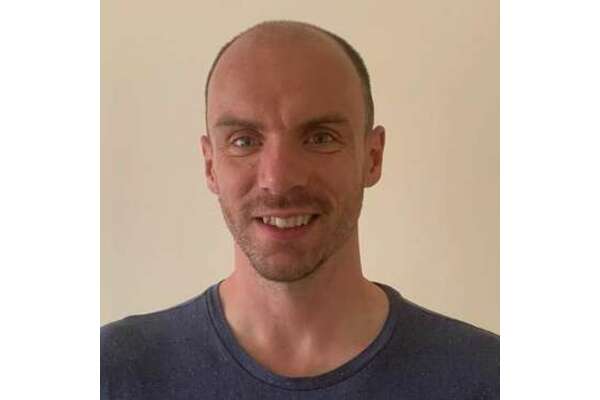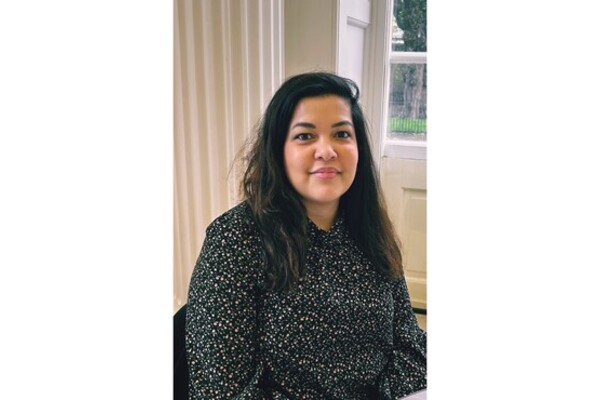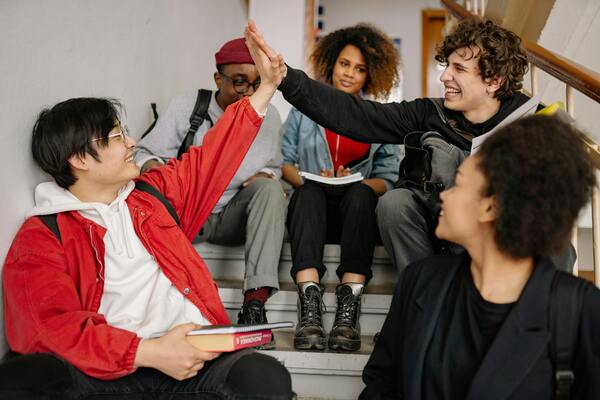Jonny Girvan describes coming from a nursing background into his role, and how he's been developing peer support schemes.
Name
Jonathan Girvan
Job title
Mental Health and Wellbeing Practitioner
Employer
Staffordshire University
How long have you worked in student mental health?
Since November 2019
How long have you been in your current role?
June 2021
Can you outline your career and how you got to where you are today?
I started off working in mental health as a clinical support worker within an in-patient unit for CAMHS, a service that supported 13-18 year olds with quite severe mental health needs and complex concerns in terms of risk. I was fortunate enough to get the job there when they were opening a brand new ward. They had an acute ward and long term therapeutic ward for those with longer term complex needs but less risky in some senses, so almost rehabilitation. So that’s where I ended up starting off, on that ward.
Within a year they had some secondment opportunities. I very much grabbed that and the opportunity to study at the University of Chester to become a mental health nurse. So three years of study but throughout that whole time I did plenty of bank shifts and took plenty of placements in a variety of settings in mental health.
Then once qualified, going back to the same CAMHS ward as a nurse this time round. I spent a further year on the wards before making the jump to working in the community they called it tier two CAMHS. Which is I guess, your low end complexity and early intervention in terms of training to various staff in school settings. Also awareness raising at times for some of the students as well as consultation with staff. As well as that, having my own case load kind of supporting individuals, especially complex family needs at times, through maybe difficulties they were experiencing at that point.
I worked in the community for almost 6 years before moving across to work in a university setting. Initially at the University of Law based in Manchester but with a responsibility to campus’ across the North and Midlands. Then the opportunity at Staffordshire came along, where I started in June.
How does your experience and training help you to do your job well?
I guess for me, working with the CAMHS age group I often found myself working with the 15-18 year old group and really enjoyed working with them. I led on some projects including a peer mentor scheme within local high schools across Cheshire west whereby 6th form students were able to become peer mentors to year 7s and 8s that might just be going through some of the very basic ups and downs. We did mental health first aid with the mentors so they were also very aware of referring on if they were concerned about any more complex needs. But it was great to be able to support that project. I think that really invigorated me. I really enjoyed working with that age group. I’d always had that curiosity of working with the university age group as well and just expanding my skills and experience in that sense.
I feel a lot of it ties in quite well really. In that you’re working with young adults who are really just trying to find their feet in the world, have some kind of goals and direction their aiming for but might just need some support with that. Especially where their mental health is concerned. To help them manage kind of complex needs for a stressful time. Help them recognise some of their goals going forward and how they can work towards them.
Can you briefly explain your day-to-day responsibilities?
Student contact is a huge part. At Staffordshire we use one at a time model of support. So the way I describe that to students is like when they want to see their GP they book an appointment and get one pretty soon and go from there. As a service we’re quite similar and what that means is that we don’t have waiting lists like you can sometimes see in some services. It means we’re quite easily available. We don’t necessarily hold case loads. However, if we do have some students that present with complex needs we will engage in holding them on case load and checking in with them regularly, just to see how they’re doing and offer the support that way.
Beyond that we’re also responsible for training staff members and sometimes students in terms of awareness raising. I’m also leading on a peer mentor project here, I think my previous experience with that has tied in nicely. So we have a group of mental health peer mentors - students that want to give back and support other students, many of them with an interest in psychology or nursing for example. For them, it’s something for their CV but also it can give them experience and can be really helpful to the students who are going through some distress to have that peer mentor that they can touch base with a little more regularly. So I’m overseeing that project - working closely with our peer mentors to help them in terms of how they navigate the work in which they do, as well as referring onwards if there are more complex needs.
I also have some supervisory responsibilities to some of the Grade 6s within the team in terms of line management supervision, guidance, direction and leading from there.
What’s helped you to stay in your role?
The variety, I have always had that, where a little bit of every day is different in some ways. There are different things to get your teeth into, different projects to get going with and occupy your time and keep me busy, all of which feel good.
With the one at a time model of support you can kind of give advice and guidance to students and sometimes that’s their only contact. Sometimes they’ll have a number of contacts but you’re not necessarily there for follow ups so don’t always see the end result of a student getting through their course or whatever it might be which you can take pride in. With some of the other projects though, you can kind of see change and development within that.
We’re also currently working closely with our gym to develop an exercise referral scheme as well. We know that exercise can be of great benefit to our mental health and any students - that through some sort of social prescribed social contact as such - show any interest in that, we can refer them on to the gym who can look after them and give them a bit more guidance than they would have if they were to go along themselves, and get some support that way. So it’s nice to have these sorts of projects.
What part has UMHAN played in this?
I joined UMHAN when I was working with the University of Law and especially given as this was my first experience of working within a university settings, UMHAN was really useful. The forums, I found really useful as well as the various meetings. I didn’t make loads, but the few that I did make were really useful to get a bit of an understanding of what was going on across the country. At University of Law I was one of only two mental health advisors so in some ways it was rather isolating. At Staffordshire I’m part of a bigger team and I think I do really well as part of that, so to have that contact with UMHAN in that rather isolated role at University of Law was really valuable.
What’s your favourite part of your role?
A couple of things come to mind I guess, but to choose a favourite… One of the classic things in terms of the role we do is helping students and I love hearing what has helped them get well and stay well. I had one recently, a student had gotten quite caught up with all the bad news over the past year - Covid and more recently what’s happening in Afghanistan. He said it was all consuming and he was listening to the news a lot and reflected back on how he used to listen to music when younger and that would really impact on his mood. He said instead of listening to the news all the time I’m going to moderate it and listen to more music instead. I have come in to an email today reflecting back on how much better he’s feeling just from little changes like that, amongst other things of course. Seeing change is a highlight of the role.
What has changed in student mental health since you started your role?
I think for me, in my role it has largely been defined by Covid. I’m sure if it was longer I could offer further reflections. But within three months of starting with Uni of Law, Covid kicked in. So the obvious thing that has changed is our accessibility to students. In some ways this has been for the better e.g. offering remote support for students. We’re going to be doing some blended working going forward here at Staffordshire but that does work for a lot of students because they don’t have to get up and out of bed to come and speak to someone face to face - Some do prefer that and that’s ok, we’re able to still deliver on that, but for many they do like the ease of having a telephone call or a teams meeting and a bit of a chat and taking things from there.
So the methods in which we work is a big one with increased telephone and teams work which may kind of stick around.
What do you think are the biggest remaining challenges?
That’s a big question! I guess there’s still more to do around mental health awareness. I have delivered mental health first aid courses at times and it’s really interesting to see peoples reaction to it and see how they take that information in. There’s information within that that would be of great value to many other students as well. Trying to encourage people to have the confidence to speak to someone in distress, to be ‘the stranger on the bridge’. To not shy away from these things and to be able to support others that might be going through distress whilst also maybe recognising lesser known complex mental illnesses that can be useful for people to become aware of.









